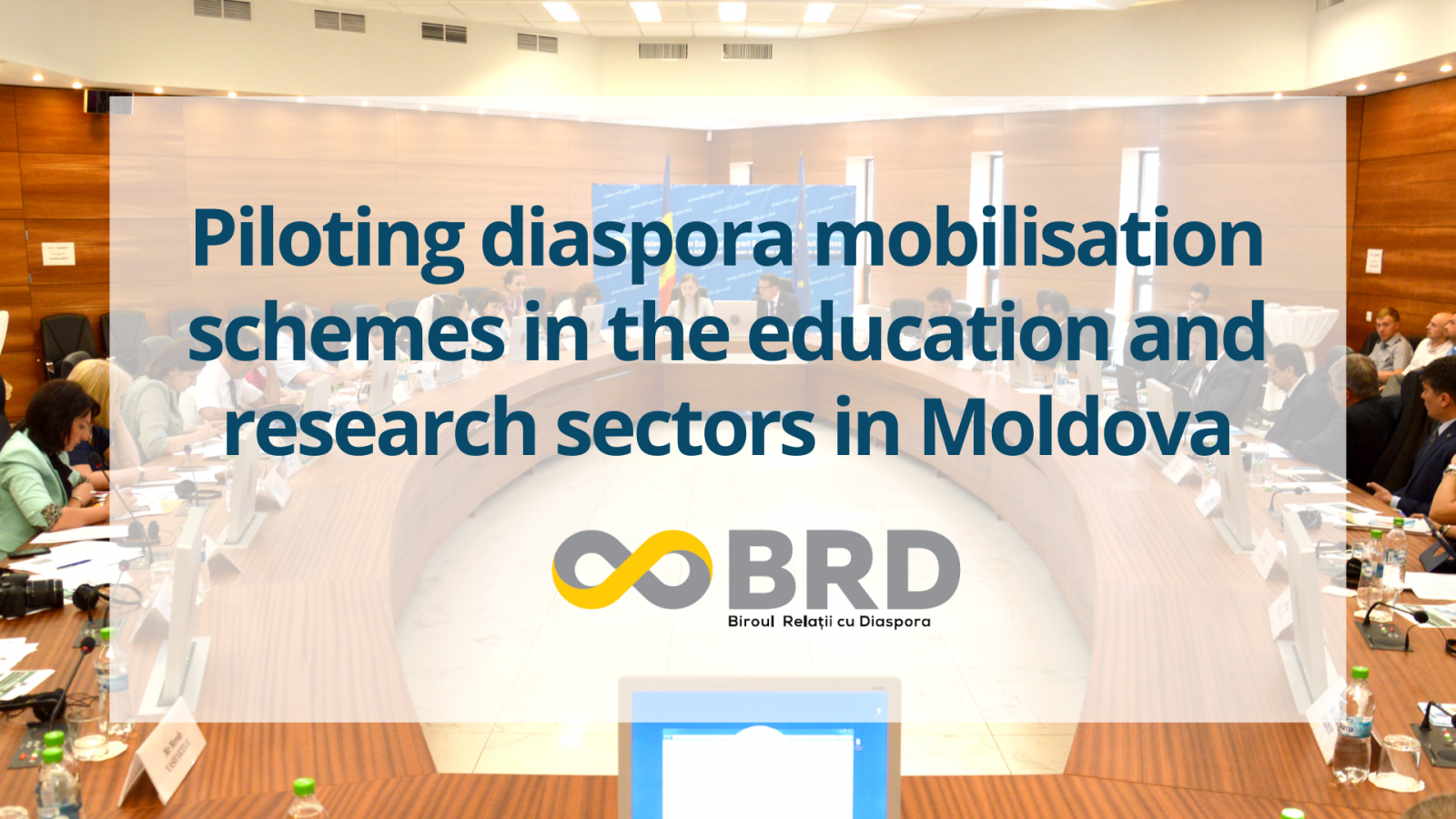
In the framework of the Diaspora Professionals 4 Development (DP4D) mechanism, we are launching our second action in Moldova, this time striving to catalyse the transfer of diaspora expertise in the research and education sectors.
Diaspora for development in Moldova
In order to tackle high emigration and brain drain, the National Diaspora Strategy of Moldova aims to leverage the human potential of the diaspora in decision-making and development processes. This is sought through facilitating permanent, temporary and virtual returns.
The Bureau for Relations with Diaspora (BRD), which is the government directorate in charge of developing and coordinating state policies on diaspora engagement, faces challenges in achieving these objectives. Firstly, the capacities and funding available for extensive research and skills auditing of the Moldovan diaspora are limited. Secondly, communication channels between the government and diaspora need to be further structured.
With these challenges in mind, EUDiF will accompany the BRD to pilot diaspora knowledge transfer schemes and diaspora networking groups. It will lay the strategic and conceptual foundations as well as practical steps to institutionalise such transfers by targeting the ‘academic diaspora’ in the education and research sectors.
Harnessing the human capital of Moldova’s academic diaspora
To assist the BRD in further engaging the diaspora, EUDiF will bring in three diaspora professionals to leverage their expertise and understanding of the specificities of the Moldovan academic diaspora. Our main envisaged outcomes include mapping the academic diaspora’s sectoral needs and opportunities, setting up a skills transfer scheme, and piloting a diaspora co-working hub, which encourages knowledge transfer.
Co-creation at the core
In the design of this action, we have centred the participatory approach, which features a key element of all EUDiF actions. In this case, it will continue to be a major feature throughout, including consultations in the initial needs assessment phase conducted with and by members of the Moldovan diaspora. This process of co-development is particularly important to develop trust and encourage ownership in the diaspora.
Additionally, peer exchange sessions will be organised for the BRD with relevant stakeholders from other countries to share experiences and brainstorm on possible approaches and solutions.
A long-term vision
Through this pilot, BRD will lay the foundations for a long-term process of diaspora engagement that it can lead and sustain for years to come. Allowing time for conceptualisation, coordination, and assessment of needs will result in a solid scheme for diaspora expertise transfer which will be replicated in other sectors as well in the future. Moreover, the outputs are expected to be integrated into the Government-Diaspora Council, which is set to be launched by the end of 2022.
“Many diaspora members are knowledge migrants, and for a country whose economy is struggling and one third of the population abroad, its biggest resource becomes its people. The value in sharing knowledge lies in its impact on behaviour as well as policies and practices. However, this transfer can have an impact [only] when we can shape together those practices with public institutions.” – Dr. Dorina Baltag, participating Moldovan diaspora professional (extract from her article)
For more about the action: